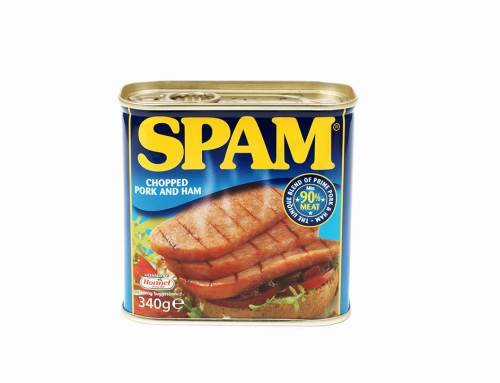 Does Google top best search engines in the World?
Does Google top best search engines in the World?
You maybe surprised but it does have competition and not just from Bing and whether Google is one of the best search engines for you, as a user or advertiser or search engine optimiser will vary depending on language and location.
Nobody will deny that Google is a very dominant search engine, particularly in the UK and US and although Google does have native language versions other than English, there are others that are doing a better job so here we look at the best search engines in the World.
What defines ‘best’ differs between who is asking the question or the need of the user but for the purpose of users searching and businesses looking to figure out where to concentrate their search marketing, the answer of what’s the best search engine in the context of this post is the one that exposes your business to the most users, i.e. biggest search market share.
So, taking the best search engine to mean the most popular search engine, here is the list of the top 10 search engines around the World by global market share, across all devices and browsers.
Search Engine Market Share 2018 (Global)
| 76.36% | |
| Baidu | 15.38% |
| Bing | 4.49% |
| Yahoo! | 2.55% |
| Yandex | 0.61% |
| Ask | 0.21% |
| DuckDuckGo | 0.17% |
| Naver | 0.11% |
| AOL | 0.04% |
| Dogpile | 0.03% |
source: netmarketshare.com search engine market share 2018.
No 1 Search Engine: Google
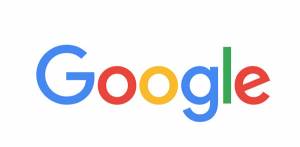 No surprises here. With over 75% of the global search engine market the label of the worlds best search engine is surely Google’s, without a doubt.
No surprises here. With over 75% of the global search engine market the label of the worlds best search engine is surely Google’s, without a doubt.
Founded in 1998 by Larry Page and Sergey Brin (12th and 13th on the 2018 Forbes Rich List with personal fortunes in excess of $47bn each, Google is part of Alphabet Inc. Alphabet is the third biggest company in the World behind Apple and Amazon and perhaps the next logical contender to be the next trillion dollar company.
Google is a truly global search engine with native language search versions and results pages in most countries around the world each with their own top level domains from Afghanistan (google.com.af) to Zimbabwe (google.co.zw).
At the last count Google processes in excess of 40,000 search queries every second which translates to over 3.5 billion searches per day and 1.2 trillion searches per year worldwide.
Market Share (2018): 76.36%
Founded: 1998
Founders: Larry Page & Sergey Brin
CEO: Sundar Pichai
Headquarters: Mountain View, California, United States
2017 Revenue: $110bn
2016 Revenue: $90bn
No 2 Search Engine: Baidu
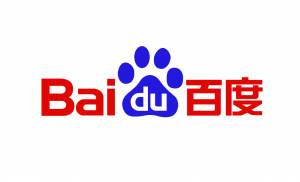 Occupying the 2nd spot of the worlds best search engines is Chinese giant Baidu, with 15% of the global search engine market share.
Occupying the 2nd spot of the worlds best search engines is Chinese giant Baidu, with 15% of the global search engine market share.
Unlike Google which has native language versions in many countries around the world and is truly global Baidu however is almost unheard of outside of China. But given the fact that Baidu is the World’s 2nd biggest search engine by market share yet is only in China is testament to just how vast the Chinese search engine market is. Some 665 million active monthly mobile search users dominate how people use Baidu and with some 500,000 paid for search customers, their ad revenue is growing year on year but in context, Baidu is still a fraction of the size and influence of Google.
Market Share (2018): 15.38%
Founded: 2000
Founders:Robin Li & Eric Xu
CEO: Robin Li
Headquarters: Beijing, China
2017 Revenue: $13.03 bn
2016 Revenue: $10.16 bn
No 3 Search Engine: Bing
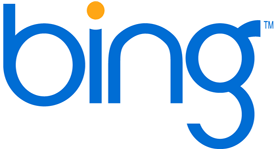 Occupying the 3rd spot of the worlds best search engines is Bing, with just 4.4% of the global search engine market share.
Occupying the 3rd spot of the worlds best search engines is Bing, with just 4.4% of the global search engine market share.
The Bing name is a relative newcomer to the global search engine but it was the successor to MSN Search which was founded in 1998.
Although Bing is second place to Google in terms of its popularity for search users and revenues and Microsoft it is again second to Google in terms of market valuations ($750bn & $766bn respectively). Microsoft owner Bill Gates is the worlds 2nd richest man, although losing out to Amazon’s Jeff Bezos in this case and not Google for once.
It just seems that Microsoft cant get to first place but with 1.23bn unique monthly global visitors to the Bing website and a Monthly search volume of Bing worldwide at 12bn it is still a giant in search.
Market Share (2018): 4.49%
Founded: 2009
Founders: Microsoft
CEO: Steve Ballmer
Headquarters: Bellevue, WA, USA
2017 Revenue: $28.9bn
2016 Revenue: $25.6bn
No 4 Search Engine: Yahoo
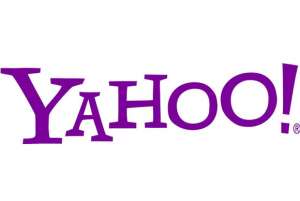 Although the Yahoo web directory was a well known internet name from 1998 it wasn’t until 2002 that Yahoo ventured into the search engine business.
Although the Yahoo web directory was a well known internet name from 1998 it wasn’t until 2002 that Yahoo ventured into the search engine business.
Yahoo Search started when Yahoo bought Inktomi (2002) and then Overture Services Inc. (2003) which in turn had already bought AlltheWeb and Altavista which had been search engines since 1999 and 1995 respectively.
But since October 2011 Yahoo search has been powered by Bing as Yahoo never really found its way as a standalone search engine. Now owned by Altaba Inc. a New York investment company as a result of Verizon’s acquisition of Yahoo! Inc’s internet business interests in June 2017.
Altaba Inc also owns 16% in Alibaba Group, the 5th most valuable company globally but given Yahoo search is largely powered by Bing it doesn’t bode well for the Yahoo name as being able to change its fortunes or increase its position as the number 4 search engine with less than 3% of the global search market.
Market Share (2018): 2.55%
Founded: 2002
Founders: Jerry Yang and David Filo
CEO: Thomas McInerney
Headquarters: Sunnyvale, California, United States
No 5 Search Engine: Yandex
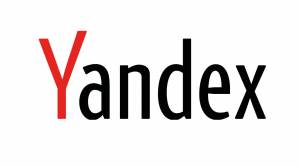 Yandex is among the most popular websites on the entire Internet with a global Alexa rank of 21 but in terms of Russian language Yandex is ranked 1st.
Yandex is among the most popular websites on the entire Internet with a global Alexa rank of 21 but in terms of Russian language Yandex is ranked 1st.
As the largest technology company in Russia Yandex’s influence is mighty and it’s the 4th most popular overall website in Russia.
Despite Yandex being so popular in Russia it still only has 53% of the Russian search market, with Google Russia having some 43%. However as the market is not dominated by one but shared almost equally by two players you would hope that this is ultimately in the best interests of users and advertisers with both Yandex and Google trying to stay relevant.
Market Share (2018): 0.61%
Founded: 1997
Founders: Arkady Volozh, Arkady Borkovsky & Ilya Segalovich
CEO: Arkady Volozh
Headquarters: Moscow, Russia
No 6 Search Engine: Ask
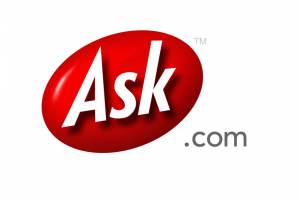 Formerly known as Ask Jeeves which was once a much more popular search engine from its 1996 inception, Jeeves however retired in 2006.
Formerly known as Ask Jeeves which was once a much more popular search engine from its 1996 inception, Jeeves however retired in 2006.
Ask.com is still around as the 6th biggest web property in the US with 90 million monthly users.
It is clearly not one of the best search engines anymore as it only receives approximately 0.05% of the search share. However, since dropping Jeeves and becoming part of IAC (InterActiveCorp) which also owns TripAdvisor, Ask.com is moving away from algorithmic search into a more nuanced search based on its original question/answer format.
Given its lack of search quality and relevance compared to Google or even Bing and Yahoo it is probably a wise move for Ask to refocus.
Market Share (2018): 0.21%
Founded: 1996
Founders: Garrett Gruener and David Warthen
CEO: Joey Levin (IAC)
Headquarters: Oakland, California, United States
No 7 Search Engine: DuckDuckGo
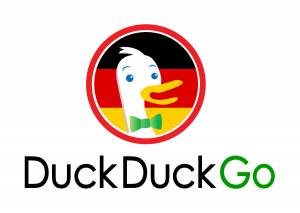 DuckDuckGo is an internet search engine that shuns the traditional search model and instead emphasises the protection of internet searchers privacy and avoids the filter bubble of personalised search results.
DuckDuckGo is an internet search engine that shuns the traditional search model and instead emphasises the protection of internet searchers privacy and avoids the filter bubble of personalised search results.
With just 53 employees DuckDuckGo’s reach is impressive but it is still a very tiny search engine and they likely have a smaller global reach and marketshare as Google Poland.
Nevertheless DuckDuckGo is ambitious and has partnered with Yahoo and Bing to bolster its search engine. Its revenues come from a Yahoo-Bing search alliance network and affiliates from within that network. But for advertisers whilst DuckDuckGo cost per click is literally 10x cheaper than Google, it has far more than 10x less reach with just over a tenth of a percentage point market share.
Market Share (2018): 0.17%
Founded: 2008
Founders: Gabriel Weinberg
CEO: Gabriel Weinberg
Headquarters: Paoli, Pennsylvania, United States
No 8 Search Engine: Naver
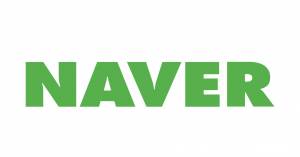 Like Baidu in China and Yandex in Russia, Naver is commonly referred to as ‘the Google of South Korea’ and as of the end of 2017, the Naver search engine handled 74.7% of all web searches in South Korea.
Like Baidu in China and Yandex in Russia, Naver is commonly referred to as ‘the Google of South Korea’ and as of the end of 2017, the Naver search engine handled 74.7% of all web searches in South Korea.
With 42 million enrolled users and more than 25 million Koreans having the Naver search engine as the start page on their default browser the Naver search engine may not be regarded as one of the best search engines for global reach (with just over a tenth of a percentage point market share) but it is arguably the best search engine for users and advertising companies in South Korea where it outranks every other engine.
Market Share (2018): 0.11%
Founded: 1999
Founders: Lee Hae-jin
CEO: Han Seong-Sook
Headquarters: Seongnam, South Korea
No 9 Search Engine: AOL
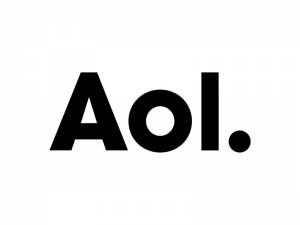 AOL is another former search engine giant that, like Ask and others of the 90’s lost its way and lost its market share to Google.
AOL is another former search engine giant that, like Ask and others of the 90’s lost its way and lost its market share to Google.
Formerly known as America Online, AOL is a web portal and online service provider that is a subsidiary of Verizon Communications.
AOL bought WebCrawler in 1995 to launch a search engine in order to bolster it’s growing online service provision business. The WebCrawler search engine, founded by Brian Pinkerton was a bold move at the time as unlike its predecessors WebCrawler allowed users to search for any word in any webpage. Although innovative at the time and this has become the standard for all major search engines since, AOL didnt keep up with their innovation and stagnated.
What was relevant in 1995 is not the case now and AOL lost out to Google largely down to the Yahoo Search Demise model where the core service offering (being search) is outsourced thus devaluing the AOL name in terms of a legitimate search provider.
Market Share (2018): 0.04%
Founded: 1995
CEO: Tim Armstrong
Headquarters: New York, United States
No 10 Search Engine: Dogpile
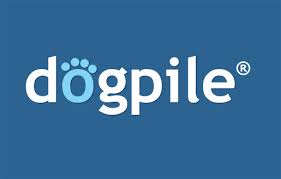 Dogpile is not strictly a search engine but a metasearch engine (or search aggregator) that uses other search engine’s data to produce its own results.
Dogpile is not strictly a search engine but a metasearch engine (or search aggregator) that uses other search engine’s data to produce its own results.
With only one-third of 1% of the global search market its relevance is tiny but for those in search its ability and use in measuring the overlap and ranking differences of leading search engines is useful. However, as this ability to research global ranking differences has been primarily only in the form of large educational led studies, its use to individuals be they users or advertisers, is very limited.
Market Share (2018): 0.03%
Founded: 1995
Founder: Aaron Flin
Conclusion, which is the Worlds Best Search Engine?
Now that we have had a look at the best and most popular search engines in the world its time to discuss how you, as an advertising business or a business looking to get organic SEO results, think about where to focus your search marketing activites and capitalise on these opportunities.
Whilst the Best Search Engine is arguably Google, by a mile, if you want to reach the Chinese speaking market Baidu is clearly the favourite, as is Naver for the South Korean market.
In Russia there is an almost 50/50 split between Google and Yandex and this sets up the key question….
Which Search Engine Do You Focus On?
As with most marketing scenarios, search marketing is no different. You focus your attentions on the channels that drive you the best returns on investment.
Putting all of your eggs in one basket such as opting for a sole focus on Google is rarely the best strategy as when it comes to search engines and in particular paid search like Google Adwords, you lose out on the traffic that favours Bing, or favours Yandex in Russia for example.
As we’ve shown Google isn’t dominant in all search markets so any good SEO Strategy or PPC Strategy should take into account your target market and what channels (or in this case search channels) offers you the best chance of success.
Whilst we have focused on the global search market, when it comes down to more national and local search strategies there is an abundance of data to review, so if you need some help with local, national or international search marketing, get in touch for a Free, No Obligation Consultation.

Error: Contact form not found.



